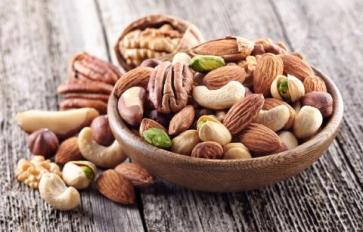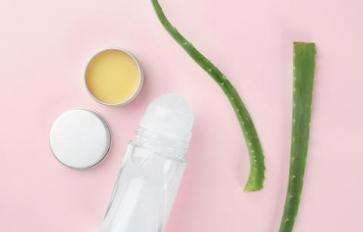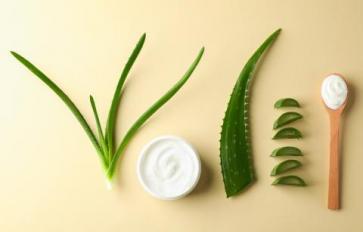
Recently, I had to rush one of my best friends to the hospital. The reason? Coconut oil. While coconut oil is a rare allergy, it's a dangerous one because it's in everything from hand soap to tropical drinks. While I personally adore coconut oil, and all coconut products, my friend's intense allergic reaction was an eye opener for me: Not everyone can enjoy the benefits of coconut oil. It made me wonder what alternative plant oils there are out there for non-coconut lovers, or people (like my friend) who are allergic. Others aren’t a fan of coconut oil due to its taste or consistency (it can get pretty greasy! There's good news: My friend is perfectly fine now, and there are plenty of plant oils out there just as equally amazing and versatile as coconut oil. Here are three of my favorites that can be used both in the kitchen and in your beauty routine.
Avocado Oil
Everyone loves avocados, but what about avocado oil? It's so versatile: You can use it for greasing up a frying pan or moisturizing your skin. While coconut oil can be found in most skincare products that nourish and hydrate your skin, avocado oil is a great substitute. That's because it contains oleic acid a fatty acid found in heavier, slow drying oils that makes it great for people with dry skin. If you decide to use it for your skin, you can simply apply it to the driest, flakiest areas and rub it in like a lotion. It can also be used as an eye cream, or a hair treatment because of its nourishing qualities (after all, it's loaded with vitamins D and E, magnesium, and potassium). Try putting some oil onto the ends of damp hair and letting it air dry (this will help treat split ends), or dab a little oil under each eye before bed to look refreshed in the morning. If you'd rather use it in cooking, try using it as a salad dressing instead of olive oil, or use it in your next stir fry.
Argan Oil
Argan oil is famous for its hair-beautifying properties, but did you know you can eat it too? It makes sense: after all, this healthy oil is loaded with vitamins A and E, linoleic acid, Omega-6 fatty acids, and anti-oxidants. Those nutrients aren't just great for your hair; they're great for overall health. It's not as common to eat argan oil though, so I recommend making sure to buy culinary argan oil of the highest quality. While you may find eating it a bit strange, rest assured that the people of Morocco have been using it for centuries in their culinary dishes. It's got a slight nutty flavor and actually has three times the vitamin E that olive oil has. Not to mention it’s proven to help maintain a healthy heart and aid in digestion. Here's a recipe you can use (located at the bottom of this page) to try experimenting with culinary argan oil. If you'd rather just use it for beauty, all you need is just a drop of it: It'll protect you from environmental damage and free radicals. You can use it in your hair daily or once a week as a leave-in conditioner as long as you don't over apply it. You'll be amazed at the results!
Grapeseed Oil
Grapeseed oil is becoming more and more common on supermarket shelves (alongside avocado oil), and for good reason. It's loaded with antioxidants that make it a great addition to any skincare regime. Want to get rid of those wrinkles, stretch marks, or age spots? Grapeseed oil is your new best friend. It also contains linoleic acid (also found in argan and avocado oil), which can fight acne and inflammation. To use it, just apply 2-3 drops on your face morning and night. You can also use it in cooking, especially for baking and deep-frying. That's because it has a smoke point higher than most conventional oils (olive oil, corn, or sesame being some) and can be safely used at hotter temperatures. Of course, you can always use the oil to make healthier foods, such as salad dressing or homemade vegan mayonnaise.








